1. Error Correction
AI is dramatically improving quantum error correction by learning to detect and fix errors beyond the capability of human-designed methods. Machine-learning-based decoders can analyze error syndromes from quantum error-correcting codes and predict corrections with higher accuracy, adapting to the complex noise in real devices. This boosts the reliability of quantum processors by reducing logical error rates, an essential step toward practical large-scale quantum computing. For example, a neural-network decoder (termed “AlphaQubit”) developed in 2024 outperformed the best traditional decoding algorithms on Google’s Sycamore quantum processor, marking a significant leap in error correction performance. Such AI-driven decoders continuously learn from data, allowing them to handle non-uniform error patterns and outstrip static, hand-crafted decoders in preserving qubit integrity.
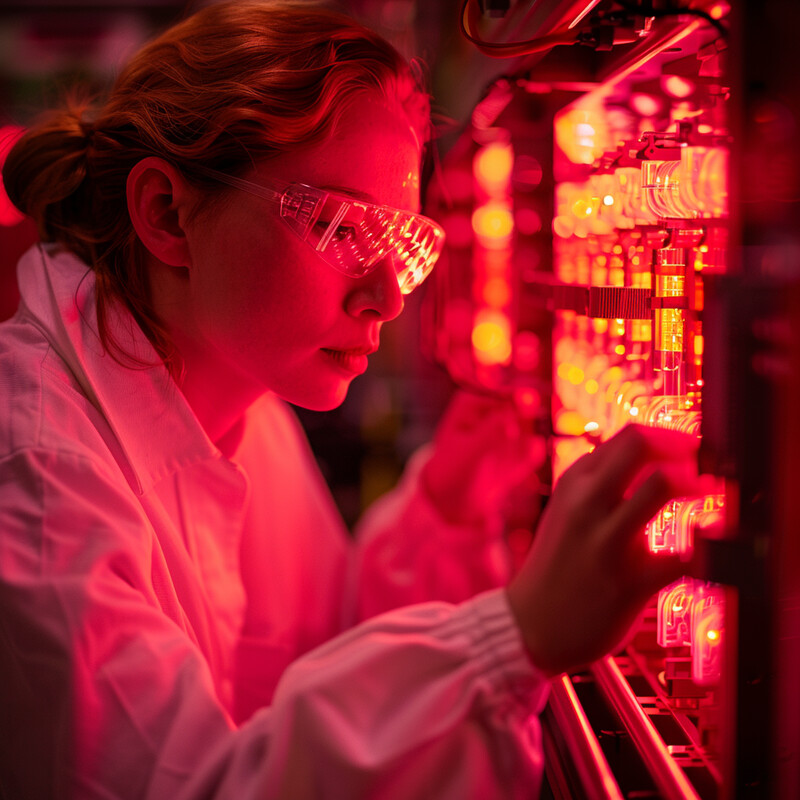
A 2024 Nature study introduced a transformer-based AI decoder that achieved lower error rates than state-of-the-art decoders on real quantum hardware, effectively learning to correct quantum memory errors more accurately than human-designed algorithms.
2. Algorithm Optimization
AI techniques are being applied to optimize quantum algorithms and circuit designs, making them more efficient for current hardware. Through automated search and reinforcement learning, AI can discover shorter or lower-error quantum circuit implementations that accomplish the same computational task. This reduces the number of necessary operations, especially costly two-qubit gates, which in turn cuts down error accumulation. A notable 2024 collaboration between Quantinuum and Google DeepMind used an AI agent to minimize the use of “T-gates” (a type of quantum gate that is resource-intensive in error-corrected systems) in quantum circuits. The AI-driven compiler, called AlphaTensor-Quantum, learned strategies to replace or reorganize T-gates, yielding circuits with 20–50% fewer two-qubit gate operations compared to standard methods (Wodecki, 2024). By trimming the gate count and optimizing gate sequences, such AI optimizers speed up quantum computations and improve their success probability on noisy hardware.
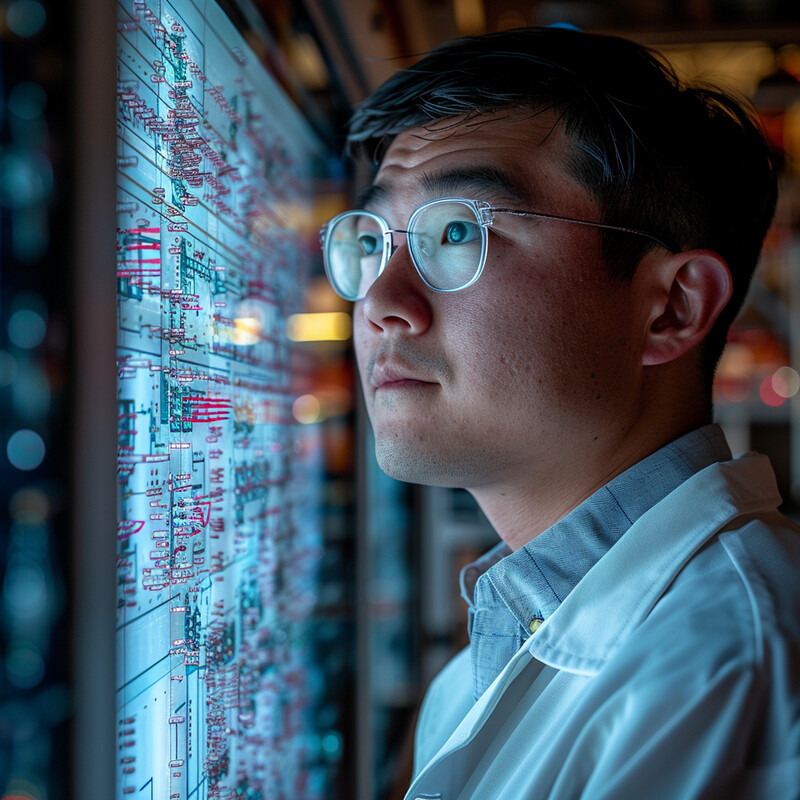
Researchers reported that a reinforcement learning-based quantum compiler could reduce the two-qubit gate count in quantum circuits by roughly 20–50% relative to conventional heuristic compilers, potentially accelerating algorithms and lowering error rates.
3. Hardware Design
AI is aiding the design of quantum computing hardware by simulating and evaluating design choices faster than traditional methods. Quantum hardware involves many parameters – from qubit materials and geometries to control wiring – and AI can help search this design space for optimal configurations. For instance, machine learning models can act as “digital twins” of quantum devices, predicting how a qubit will behave under certain conditions or how changes in layout might affect performance. In 2025, a research team developed an AI model that trained itself to predict a quantum system’s dynamics and even infer hidden device parameters from observed data (The Quantum Insider, 2025). By understanding the underlying quantum hardware more deeply, such AI tools can guide engineers in tuning qubit designs (e.g., spacing, shielding, and connectivity) to maximize coherence times and minimize interference. This accelerates innovation by reducing the need for exhaustive trial-and-error in the lab, effectively letting designers test ideas in simulation with high fidelity.
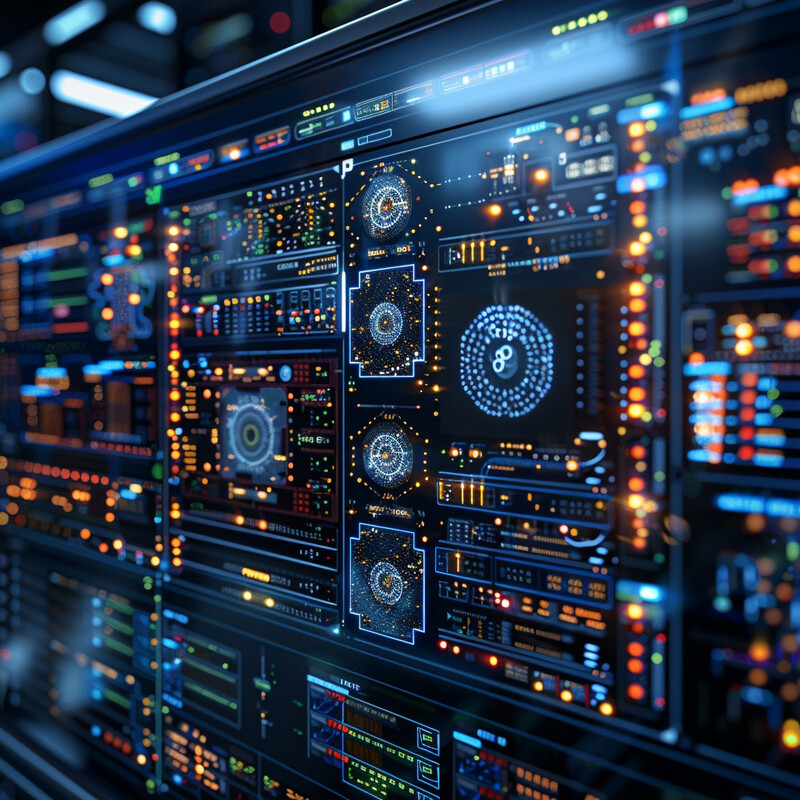
A joint research team reported an AI model capable of predicting quantum processor dynamics and uncovering hidden calibration parameters, suggesting it can automate parts of hardware tuning and improve quantum device performance by informing better design choices.
4. Gate Optimization
AI helps optimize quantum gate operations, improving their precision and fidelity through intelligent control. Quantum gates (the basic operations on qubits) are analog in nature and require careful calibration; slight errors in timing or amplitude can introduce mistakes. AI algorithms can fine-tune the control pulses that implement these gates far better than manual tuning. For instance, AI-based control software can adjust a gate’s control waveform to counteract known error sources like crosstalk or drift. In 2023, quantum engineers reported using an automated closed-loop optimization (with machine learning) to calibrate single- and two-qubit gates to near the theoretical fidelity limits set by qubit coherence (Q-CTRL, 2023). This AI-optimized approach achieved over 7× improvement in two-qubit gate fidelity compared to the default factory settings on the same hardware. By pushing gate errors to the physical limits (often called “T1 limit” for relaxation), AI ensures quantum computations run with minimal error, directly boosting the feasible circuit depth on today’s devices.
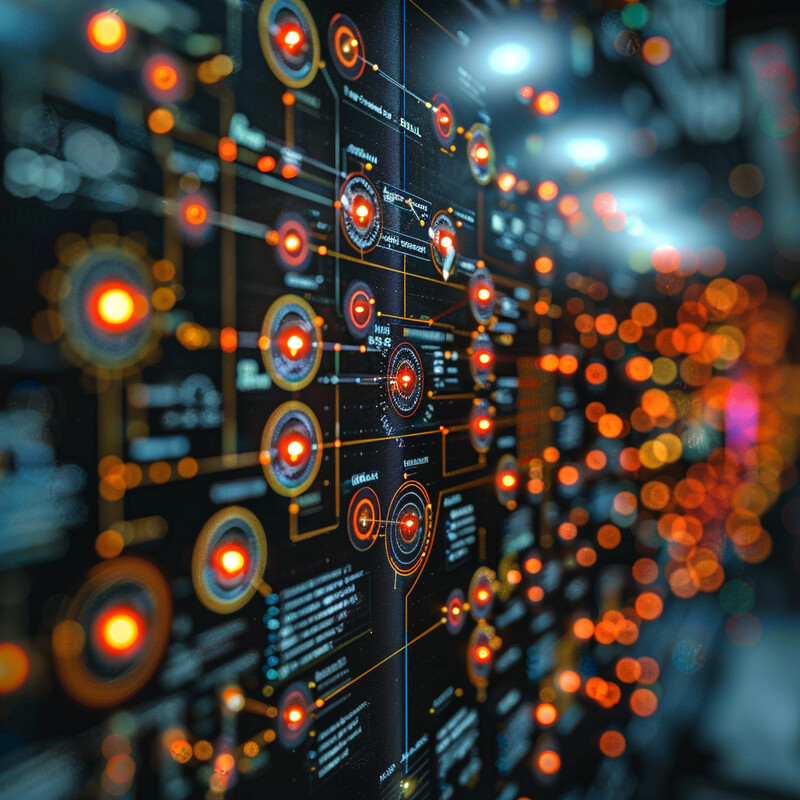
Using AI-driven pulse optimization, researchers were able to execute one- and two-qubit gates with fidelities approaching the qubits’ $T_1$ coherence limit, representing a more than 7-fold improvement in error rates over the unoptimized gates on those devices.
5. Quantum State Characterization
AI is improving how we measure and characterize quantum states by making these processes more efficient and scalable. Quantum state characterization (like quantum state tomography) traditionally requires an enormous number of measurements and heavy classical computation to reconstruct a state’s wavefunction. Machine learning offers a smarter way: by identifying patterns in measurement data, AI can infer state properties (like entanglement or fidelity) with far fewer samples. In 2023, for example, researchers used a deep neural network to directly estimate the degree of entanglement in quantum systems without doing full state tomography, achieving about tenfold lower error in entanglement quantification than conventional methods. This AI approach side-steps the need to reconstruct the entire quantum state; instead, the neural network learns to map measurement results to an entanglement estimate. The result is a much faster and less resource-intensive way to certify quantum states, which will be crucial as quantum systems grow in size. Such capabilities are important for benchmarking quantum computers and for fundamental studies where one needs to know “how quantum” a state is (for instance, in verifying quantum simulators or new phases of matter).
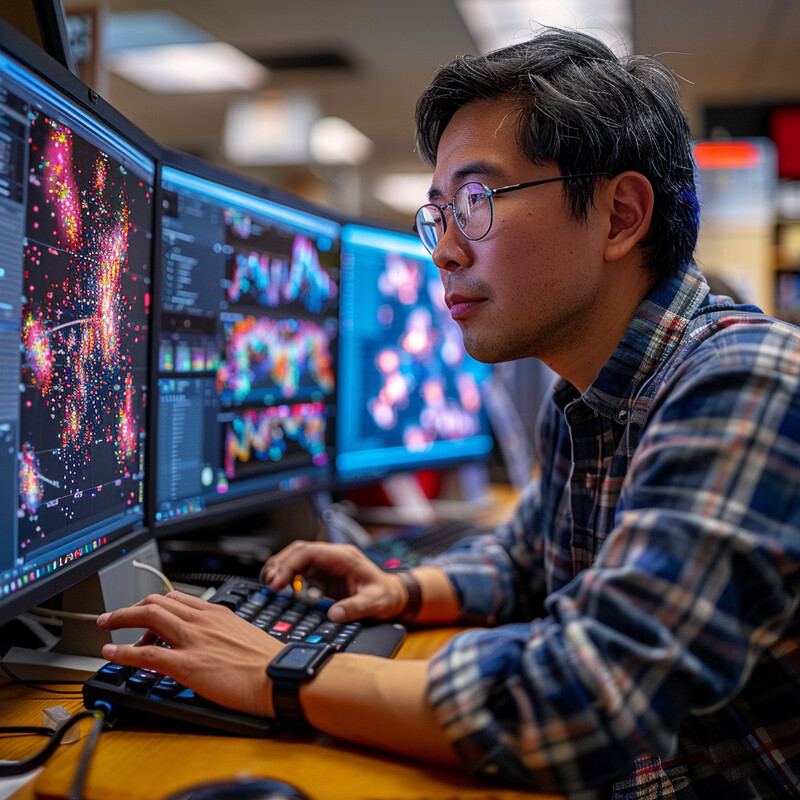
A neural network-based method was able to quantify quantum entanglement from incomplete measurement data with up to 10× lower error than a full state-tomography approach, highlighting that AI can extract state properties more efficiently than traditional exhaustive methods.
6. Resource Management
AI is being leveraged to manage the scarce resources in quantum computers – namely qubits and their interconnections – to use them as efficiently as possible. Because present-day quantum processors have limited qubit counts and connectivity, how one maps (assigns) a quantum algorithm’s logical qubits onto the physical qubits can greatly affect the algorithm’s success. AI can rapidly evaluate many possible qubit assignment layouts and choose the one that minimizes communication overhead and error accumulation. In fact, recent work showed that by intelligently selecting which physical qubits to use for a given circuit, one can improve the circuit’s fidelity by over an order of magnitude compared to a naive assignment (Quantum Computing Report, 2023). This dramatic 10× improvement was achieved by searching through mapping options – a task suited to AI or accelerated computing due to combinatorial complexity – and demonstrates how critical resource allocation is in quantum computing. By optimizing qubit mapping and scheduling with AI, quantum jobs run with fewer errors, effectively “stretching” the computational power of the hardware.
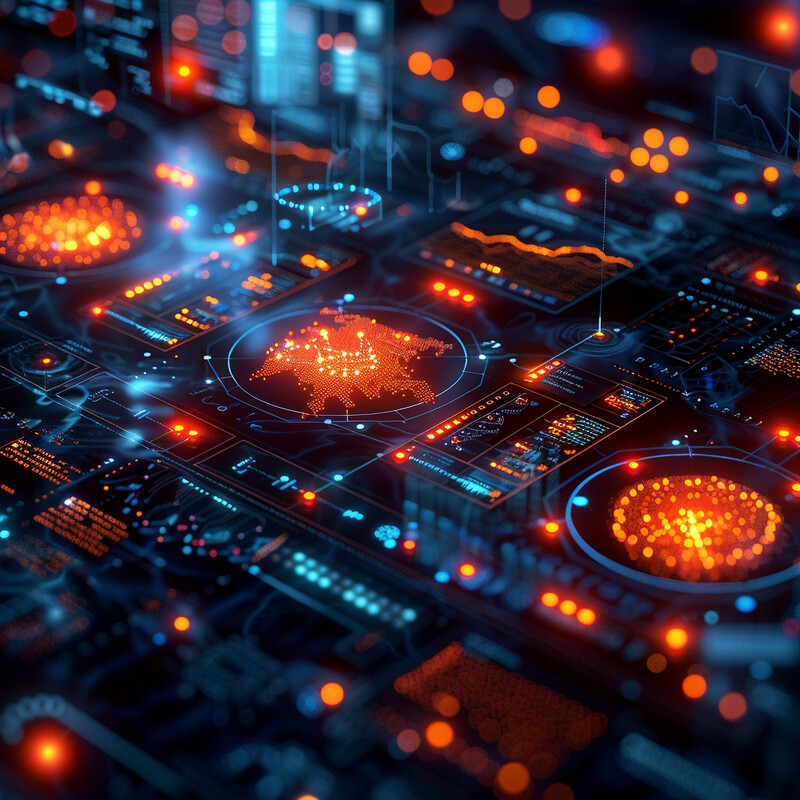
Industry researchers reported that choosing an optimal qubit layout (mapping logical qubits to physical ones on a chip) can boost a quantum circuit’s fidelity by more than 10× relative to a suboptimal layout, underlining the huge impact of intelligent resource assignment on performance.
7. System Calibration
AI is transforming the tedious process of quantum system calibration into an automated and continual procedure, which is crucial for maintaining performance as quantum computers scale up. Calibration involves tuning numerous parameters (like qubit frequencies, pulse amplitudes, and timings) so that the qubits and gates behave as intended. Traditionally, expert engineers might spend weeks tweaking a large quantum processor; AI-driven calibration can cut this time dramatically by using algorithms to search for optimal settings. In late 2024, an “AI for Quantum Calibration” challenge demonstrated that AI tools could automatically calibrate a 9-qubit superconducting quantum processor to high fidelity within hours, a task that would likely take humans much longer (Quantum News, 2024). The AI systems, provided by companies Quantum Elements and Qruise, intelligently navigated the calibration parameters, achieving 99.9% accuracy on single-qubit gates and 98.5% on two-qubit gates on a Rigetti quantum chip (Quantum News, 2024). This level of performance, reached with minimal human intervention, illustrates how AI can not only speed up calibration by orders of magnitude but also potentially improve the quality of calibration, yielding better gate fidelities than manual tuning in some cases.
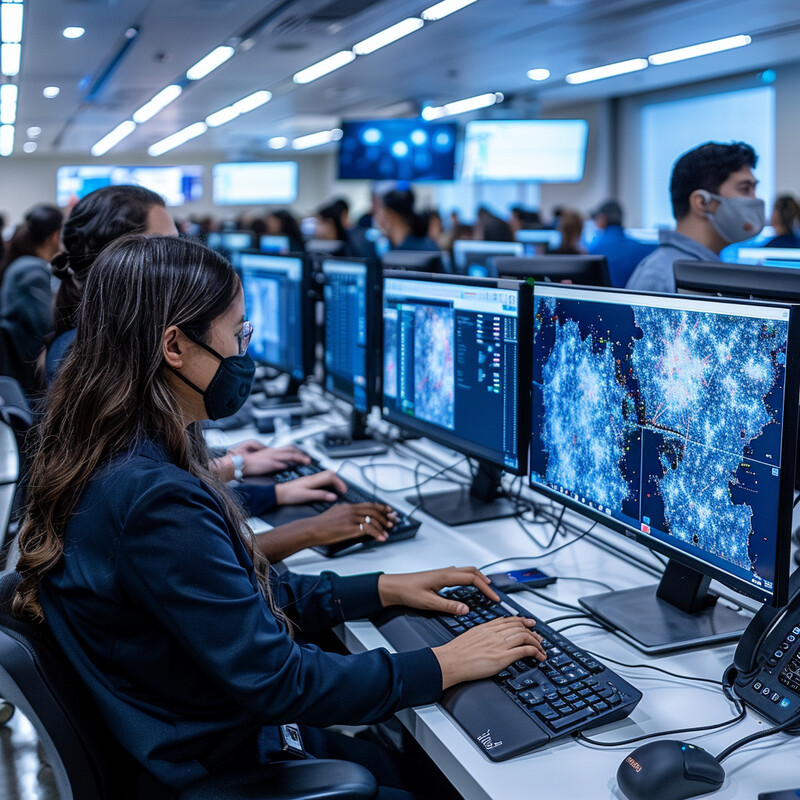
In a 2024 demonstration, two AI-driven platforms autonomously calibrated a 9-qubit quantum processor, attaining 99.9% single-qubit gate fidelity and 98.5% two-qubit gate fidelity, and compressing a calibration process that can take weeks down to a matter of hours.
8. Temperature Control
AI plays a role in maintaining the ultra-cold temperatures that quantum computers require for stable operation. Many quantum processors (such as superconducting qubit systems) must be kept at millikelvin temperatures inside dilution refrigerators. Even minor temperature fluctuations or vibrations can disrupt qubit coherence and introduce errors. AI-based monitoring systems can ingest data from numerous sensors (temperature, pressure, helium flow, etc.) and detect subtle changes that a human might miss, then adjust cooling power or cryogenic cycle timings accordingly to smooth out these fluctuations. This active feedback control helps prevent thermal drift that would otherwise decohere qubits. Keeping the environment rigorously stable is known to significantly reduce error rates – minimizing thermal fluctuations directly leads to fewer decoherence events (Quantum Zeitgeist, 2024). By using predictive algorithms, an AI might anticipate a disturbance (for example, increased heat load from a surge of quantum operations) and proactively compensate by cooling harder or reallocating cooling capacity. In effect, AI acts like a “thermostat on steroids” for quantum labs, maintaining an equilibrium that manual control systems struggle to achieve at these extreme conditions.
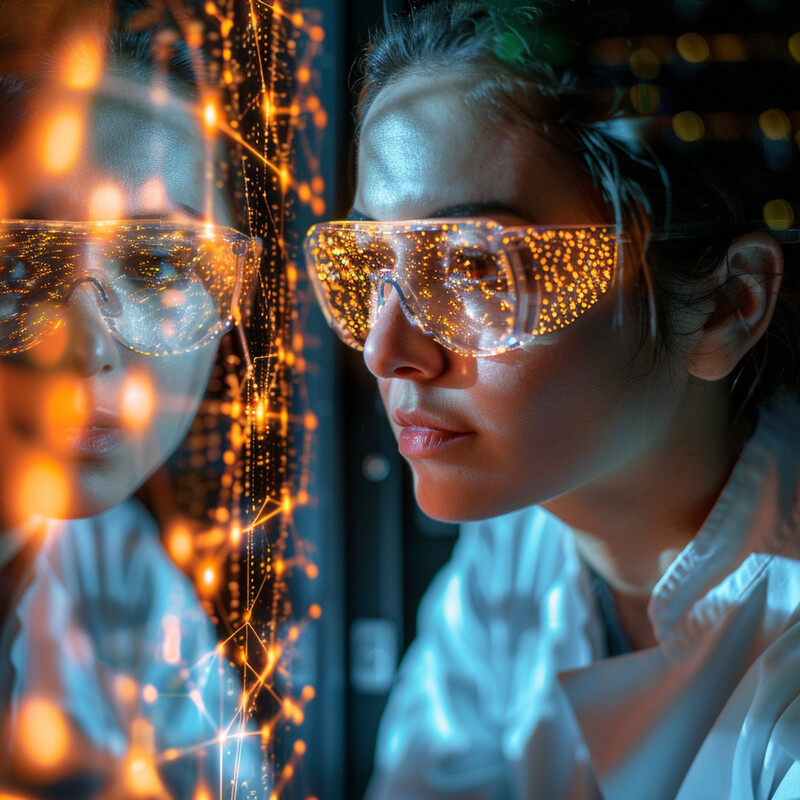
Maintaining millikelvin temperatures is so critical that even tiny thermal disturbances can cause qubit decoherence; by actively managing the cryogenic environment, AI systems help ensure that thermal noise is minimized, which in turn markedly enhances the accuracy and stability of quantum operations.
9. Quantum Simulation
AI is accelerating quantum simulations – which are simulations of quantum systems or algorithms on classical computers – by providing clever approximations and models. Many quantum simulations (like those for complex molecules or materials) are extremely demanding for classical computers, but AI can learn the patterns in quantum data and predict outcomes much faster than brute-force calculation. In 2024, scientists unveiled an AI tool that predicts the optical spectra of materials (a quantum mechanical property relevant for LEDs and solar cells) with the accuracy of quantum physics simulations but at a speed one million times faster (Tohoku University, 2024). This was achieved using a graph neural network trained on quantum simulation data, effectively bypassing the need to solve the Schrödinger equation repeatedly for each new material. Such dramatic speedups mean researchers can screen thousands of material candidates in the time it used to take to analyze one, hugely benefiting fields like materials science and drug discovery. In the context of quantum computing, fast AI surrogates can simulate how a quantum algorithm would behave, including predicting results or errors, which helps in algorithm design and debugging. By reducing simulation runtimes from days to seconds, AI allows much more extensive testing and optimization of quantum algorithms and systems in classical environments.

A new AI model developed by Tohoku University and MIT can predict a material’s optical spectrum with quantum-level accuracy while being about 1,000,000 times faster than a traditional quantum simulation of the same properties.
10. Integration with Classical Systems
AI is crucial in enabling seamless integration between quantum computers and classical computing systems, creating a hybrid computing environment where each type of processor handles the tasks it’s best at. In practical terms, most quantum algorithms require substantial classical pre- and post-processing (for data preparation, optimization of parameters, error mitigation, etc.). AI can manage this interplay by dynamically coordinating which parts of a computation run on the quantum hardware versus the classical side. It can also optimize data transfer and interpret noisy quantum outputs in real time. A clear example is in variational quantum algorithms (used for chemistry or optimization) where a classical AI optimizer updates quantum parameters. AI techniques like Bayesian optimization or neural-network optimizers are employed to tune the quantum circuit based on measurement results, significantly speeding up convergence to the solution (Tillet et al., 2023). Furthermore, AI can decide when to switch between quantum and classical processing within a workflow. The end goal is a fluid quantum-classical co-processing system. In 2023, AWS introduced the Quantum Elements platform that tightly couples classical HPC, AI models, and quantum processing for simulating molecular systems (AWS, 2023). This shows industry recognition that integrated workflows – essentially AI-assisted orchestration of classical and quantum resources – are key to extracting practical performance from NISQ-era quantum machines.
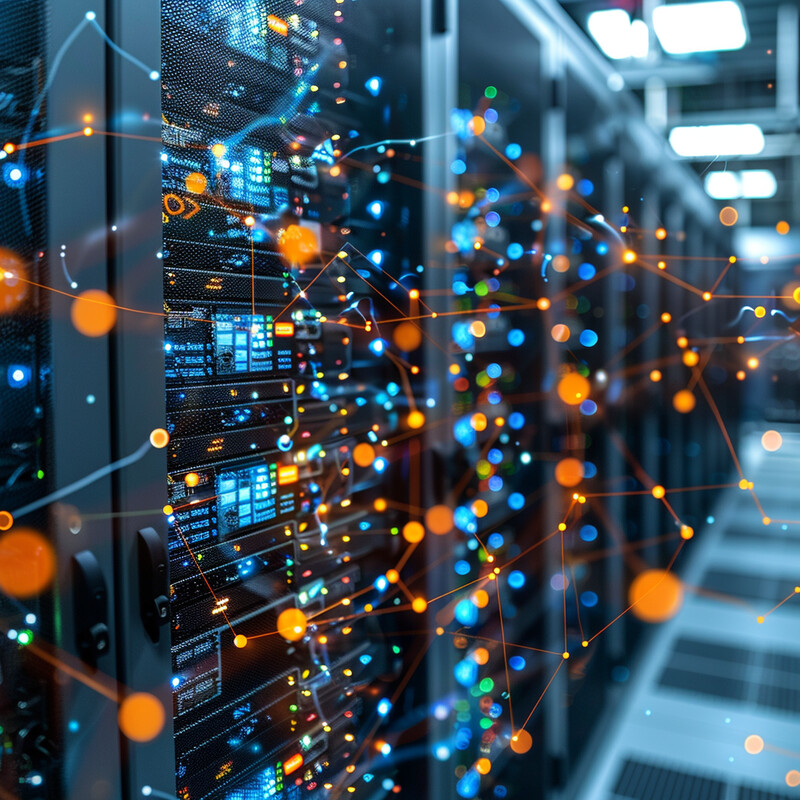
The Quantum Economic Development Consortium noted in 2024 that hybrid quantum-classical workflows, managed by AI, allow companies to start gaining value from today’s quantum processors by offloading appropriate pieces to classical HPC/AI and reserving quantum hardware for the parts where it gives an advantage.